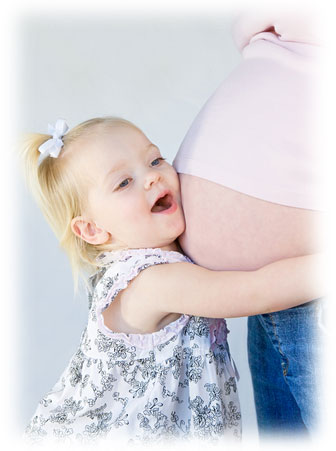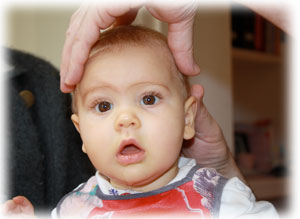Osteopaths Supporting you during your pregnancy
During pregnancy hormone levels change and this often softens ligaments and tissues making them looser and more prone to strain and injury. Old problems may reoccur and new problems such as pain in the neck shoulder, hips and lower back can also evolve
Have an easier pregnancy by getting treatment for:
- Aches and Pains from Postural Strain
- Lower back pain
- Neck pain
- Hormonal changes
- Mood swings and stress
- Morning sickness
- Heartburn and reflux
- Rib pain
- Hip Pain
- SPD Symphysis Pubic Dysfunction

Preparing you and your baby for birth
As your baby grows, osteopathy can help you prepare for an easier labour, by making sure the spine and pelvis are working to their optimum. Many patients also report a faster post-partum recovery if they have had treatment during pregnancy.
Also, by making the birthing process easier for both you and your baby, this may influence your baby’s health later on.
We help you by:
- Balancing the pelvis to facilitate an easier labour
- Treating on-going symptoms and discomforts
- Manging stress, anxiety and emotional uncertainty
- Giving you exercises and breathing techniques to help you through labour

Getting you back to normal as a new mom
Don’t worry; we know that “Normal” when you are a new Mom may seem like a distant memory. At the Winton Practice we help you adjust to your new normality… being a Mom and being in the best health you can.
We know that osteopathy may help you with:
- Back pain
- Period problems
- Stress incontinence
- Constipation
- General fatigue
- Headaches
- Feeling out of sorts and tearfulness
- Post Natal Depression
- Pelvis strain re-alignment
- Birth strain/shock
- Stress
- Lack of sleep and exhaustion
How will the treatment affect my baby?
Babies react differently to treatment. We often find that babies are very relaxed and sleep well. But some babies may be unsettled for a short while, usually just for 24 hours.
If your baby has an infection, you may find that the treatment brings it out. A mild fever may be worse but break more quickly than normal, and teething symptoms may also be worse. However, these usually only last for 24 hours.
For young infants, we suggest you bring along a drink or bottle in case they are thirsty or a bit unsettled. For nursing mothers, we have a room if your child needs to feed.
